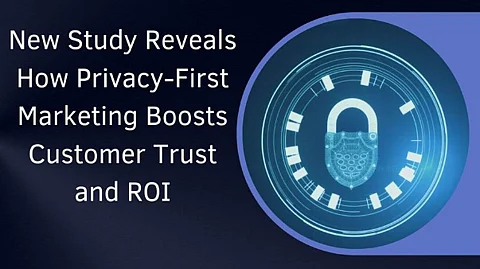

In the era of the digital revolution, the quest for balancing personalization marketing and consumer privacy has emerged as a critical challenge for organizations around the world. A very important study by Sowmya Kotha, a researcher at a leading U.S. university, shows how organizations can successfully navigate this complex landscape. This is a thorough study, based on a combination of quantitative analysis of 245 industry practices and qualitative assessment of 48 consumer perspectives, to better understand the future of ethical digital marketing. It reveals that though 73% of consumers complain about data collection, they still want personal experiences; thus, businesses have to innovate strategies and implement strong privacy frameworks to bridge this paradox.
Research unveiled an intricate dynamic within modern consumer behavior challenging traditional marketing assumptions. On the one hand, 73% of consumers loudly expressed concerns over the practice of collecting data, and on the other, they sought out and engaged in personalized experiences; this was quite paradoxical. This paradox in terms of personalization preferences vis-à-vis privacy concerns thus presents a specific challenge for marketers in balancing the provision of tailored content with transparent data practices. The study shows that if organizations clearly communicate their data usage and privacy measures, consumer acceptance of personalization increases by 56%
Modern marketing systems have significantly changed, and they now apply advanced multi-touchpoint data collection, such as behavior tracking and cross-device identification. The use of artificial intelligence and machine learning algorithms has improved the proactive ability to predict and respond to consumer needs, but this comes at a cost with increased responsibility toward protecting consumer privacy.
The study highlights a significant shift in consumer attitude, with 82% of consumers expressing privacy concerns by 2023. Brand trust has declined simultaneously, dropping to 41.8% in the same period. This needs to be compared and contrasted with the growing need for transparent and ethical data collection practices.
Organizations that embraced privacy-conscious marketing have achieved quite impressive results. The study indicated a 42% increase in consumer trust metrics without compromising the effectiveness of personalization. Moreover, the companies that adopted the proposed ethical framework reduced data breaches by 75% and substantially improved compliance metrics.
The study proposes a novel ethical framework built on three key pillars: transparent disclosure, granular consent mechanisms, and consumer data sovereignty. This approach has proven particularly effective, with organizations implementing these principles achieving 47% higher consumer trust ratings than traditional approaches.
The study details a formalized process to privacy-sensitive marketing operations. Firms that adopted the process realized a 63% higher compliance and 41% faster adoption rate of new privacy measures. The process focuses on recurring privacy impact assessments, cross-functional privacy committees, and higher standards of data encryption.
Privacy-sensitive marketing reveals a strong connection between privacy sensitivity and measurable business success. Organizations that implemented comprehensive privacy frameworks saw significant improvements across key performance indicators. In addition to the dramatic 43% improvement in customer retention rates, the businesses realized a 38% increase in marketing ROI, demonstrating that privacy protection yields tangible financial returns. The results also indicated that companies who adopt a transparent data practice have reduced their level of privacy complaints by 52% and increased the consumer's trust metrics by 67%. Such approaches to privacy include building strength in customer relationships while upgrading business performance.
The study has drawn out several major key areas that could dominate the future of marketing of privacy. With quantum computing, comes new challenges and opportunities for data security, and AI-driven privacy protection mechanisms promise more advanced safeguards. Optimizing cross-border data flow becomes ever more important as markets continue to interlink. Such developments demand the fostering of innovative privacy-preservation techniques in marketing. Here, organizations must be strategically positioned on the cusp of technological advancement. The study underlines that success in this dynamic environment demands proactive privacy protection, which should be a balance of technological sophistication with ethical considerations and regulatory compliance.
In conclusion, Sowmya Kotha's research illuminates a crucial path forward in digital marketing, demonstrating how organizations can successfully balance personalization with privacy protection. By implementing comprehensive privacy frameworks, businesses achieve remarkable results - a 43% increase in customer retention rates and a 67% boost in consumer trust metrics. The three-pillar approach of purpose limitation, data minimization, and explicit consent provides a structured framework for building stronger customer relationships while respecting privacy concerns. As we move forward in an increasingly digital world, organizations that master this balance will emerge as market leaders. The success of future marketing initiatives hinges on embracing these principles while adapting to evolving consumer expectations and regulatory requirements, making privacy-conscious marketing not just an ethical choice but a strategic imperative for business success.
